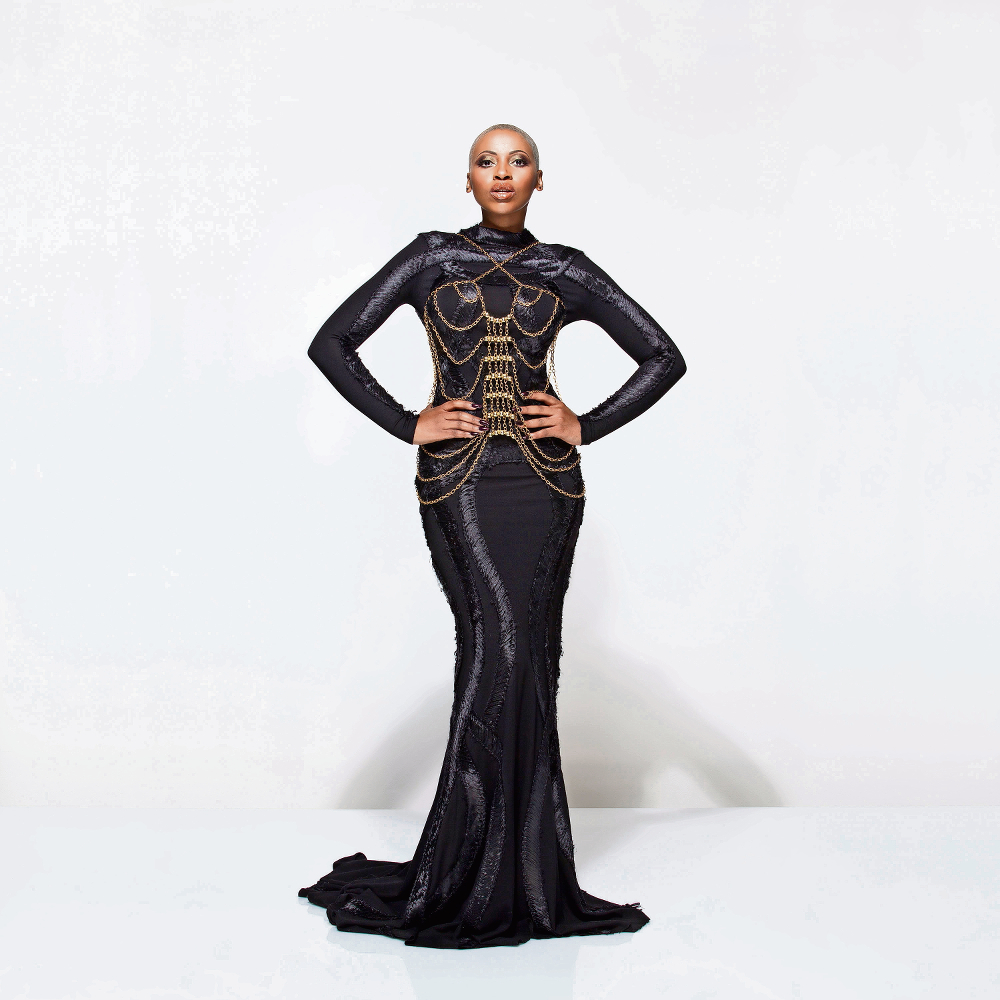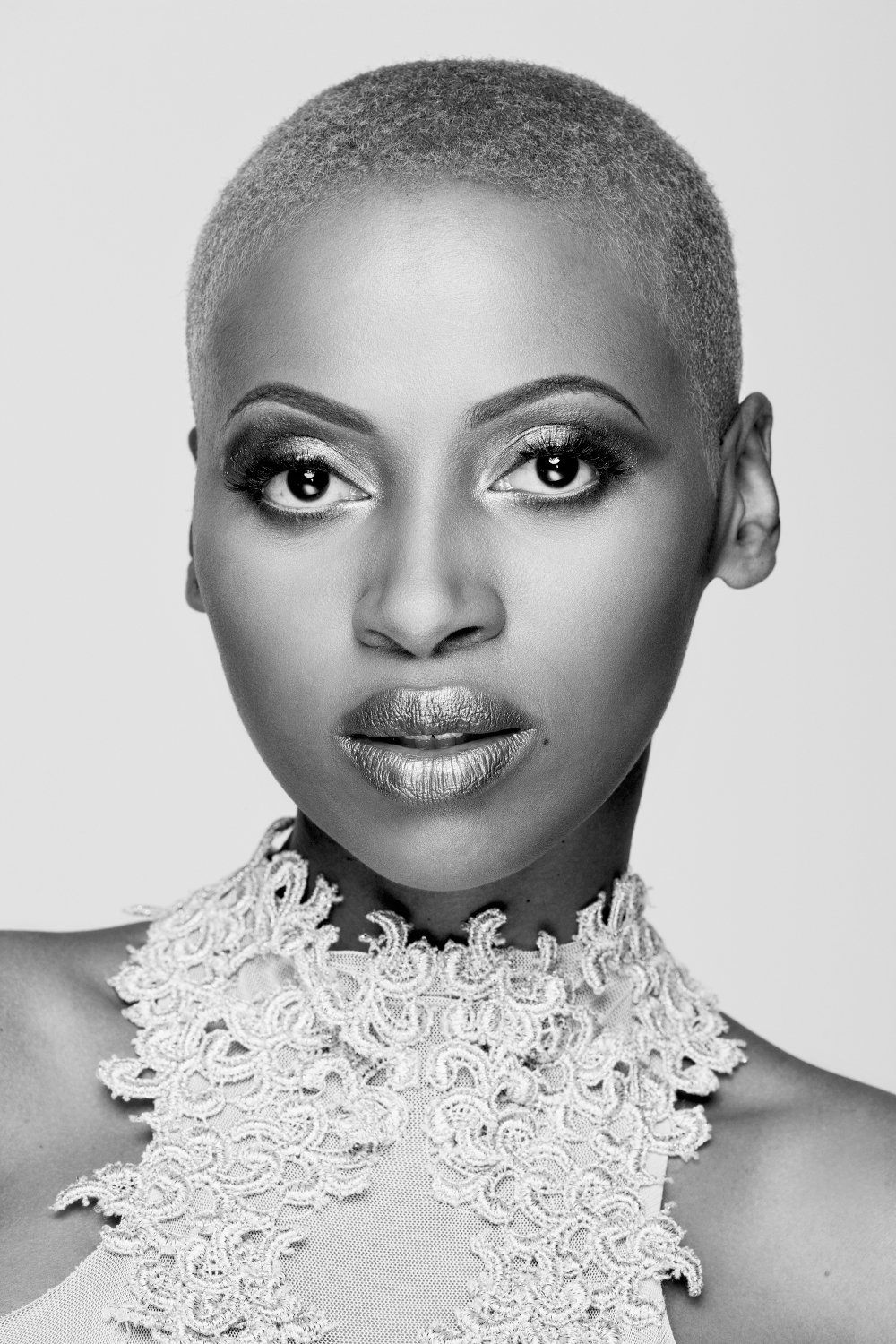Singer-songwriter Zonke Dikana.
Fresh from launching her music career in Germany in 2004 with her first solo album Solitary, Afrosoul singer-songwriter and producer Zonke Dikana returned to South Africa and a surprise.
South African music producer Oscar “Oskido” Mdlongwa told her that her sound was “too international” and that it probably wouldn’t work in a local market that had a strong house music presence. This made Dikana nervous about putting out a soul and R&B product. But she took a gamble and stuck to her preferred sound, which she infused with her mother tongue, isiXhosa.
This proved a solid recipe from which she was able to cook up three notable studio albums. Her third album, Ina Ethe (2011), earned her a South African Music Award for best contemporary album in 2013. She was busy working on her fourth album when her sister, the singer Lulu Dikana, died in December 2014.
Struggling with loss, music became a form of healing for Zonke. From a bleeding heart came her fourth and latest album, Work of Heart, which she describes as music straight from the heart. The Mail & Guardian spoke to Dikana about the album.
What inspired Work of Heart?
Everything that has happened to me. The album is like taking pages from my diary and choosing what I want to say, but it’s basically about my life. I haven’t released an album where I didn’t write about things that have happened to me. And I think that’s why people relate to my songs – they feel they were written for them.

It doesn’t sound like you’ve deviated from the sound you’re known for in Work of Heart. Is this your winning formula?
People have come back to me, saying: “Wow, I love this album even though at first I felt like this is not the Zonke I know.” So I’m surprised you say the sound is not that different because some people feel it’s different and that it takes some getting used to. To me it’s just songs. I don’t have a winning formula. But I think the formula is just being honest and sincere. You can never go wrong with that. Sincerity is the only common denominator in my songs.
Work of Heart consists of a lot of mellow and laid-back songs. Would you say that’s a reflection of where you are right now in your life?
I can say that this album is a little bit laid-back. Ina Ethe had some up-tempo songs. With this one I think I needed to be in that space where I’m like: “You know what, I don’t want to cry; I don’t want to be sad. I want to be happy and chilled.” I’ve been through so much. Right now I just want to find a space where I can be me and happy. I wanted the music to breathe – which is why the songs aren’t cluttered.
How long did you work on it?
Seven months, purely because of what happened in December. I started working on the album, but when my sister passed away I couldn’t bring myself to go back into studio. So it took longer than it probably would have to record the album.
Would you say that music helped you heal?
Being in the studio was the best thing for me, even though I avoided it at first because I wondered how I would be able to do this [music] because music is what we [my sister and I] used to do together.
When I finally got up and went back into the studio, it was now hard for me to leave the studio to go back home because going home would mean I’d be confronted with the memories and tears.
Please tell me more about the heartfelt song Meet Me in My Dreams.
The song is dedicated to my late sisters and it says: “You are not around and I can’t physically see you but I can feel you. It’s hard for me to cope without you but at least meet me in my dreams.”
What are some of your other dreams?
A global presence is something that I dream of. I want to spread my music and reach a wider audience. That is part of my plan. I don’t think it’s a far-fetched dream for an African girl.

How do you think you’ve grown as a musician?
When I listen to my songs now, I think I write and sing better. I think my production skills have improved immensely. When I listen to the album I don’t cringe as much as I did before. I’m my biggest critic. I hate listening to myself because I hear all the things that I could have done better. But when I listen to Work of Heart I’m reassured I am on my way.
Who are the other songwriters that you admire?
Internationally, I love David Foster because he has written most of the songs that I love by my favourite artists. Locally, Don Laka and my sister Lulu – she was my teacher.
What are your thoughts on the current Afrosoul scene in South Africa?
I feel there is room to improve. People think Afrosoul means singing mellow songs in vernacular and singing only about love. I don’t think soul music is like that. It can be up-tempo but it must go straight to the soul. Soul music has changed in the world, so I think it’s time that we also catch up. I love what local hip-hop has done in South Africa. It has definitely shown that we are as capable as anybody else.
Which other musician would you like to work with?
I’ve always wanted to work with Quincy Jones. And Black Coffee. I like where he is headed – he thinks globally and I would like to do something again with him. I have an upcoming collaboration with a mo-tswako rapper, whose name I can’t reveal yet.
What’s next for you?
Early next year we are doing a tour and my second video from the album Work of Heart will be out in January 2016.
What’s next for me is to develop talent. I’ve already found two people I want to record. I had held back from writing for other people because I felt I needed to concentrate on myself for a while, but my sister just kept telling me to keep at it.
So I want to go back to writing songs and turn that into a full-blown business. I would like to become the go-to person for musicians who feel I can do something for them. But my main thing is music scoring for movies, which is something I want to study towards.